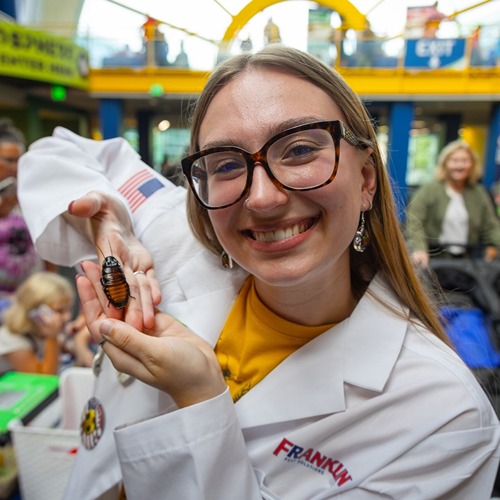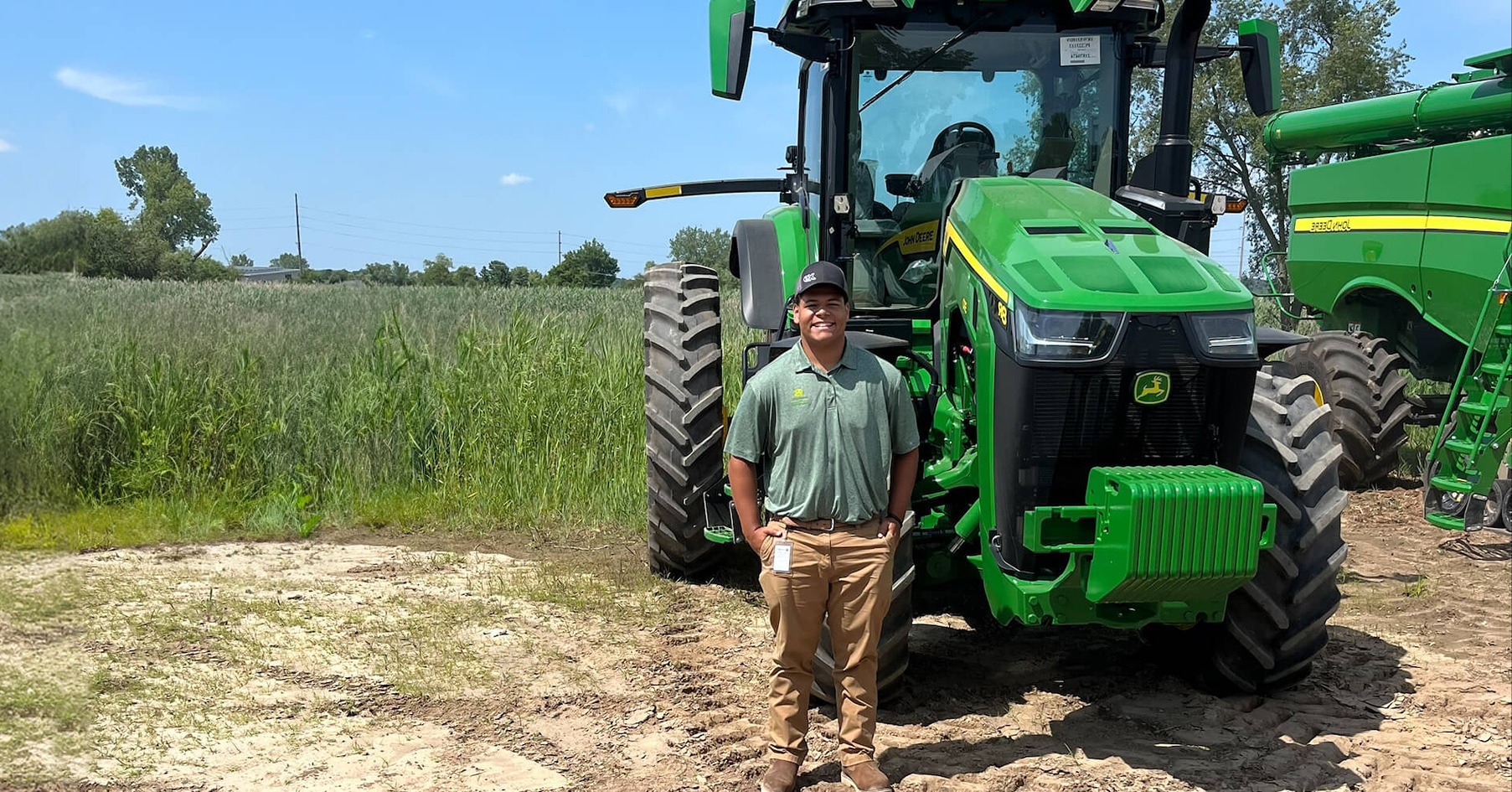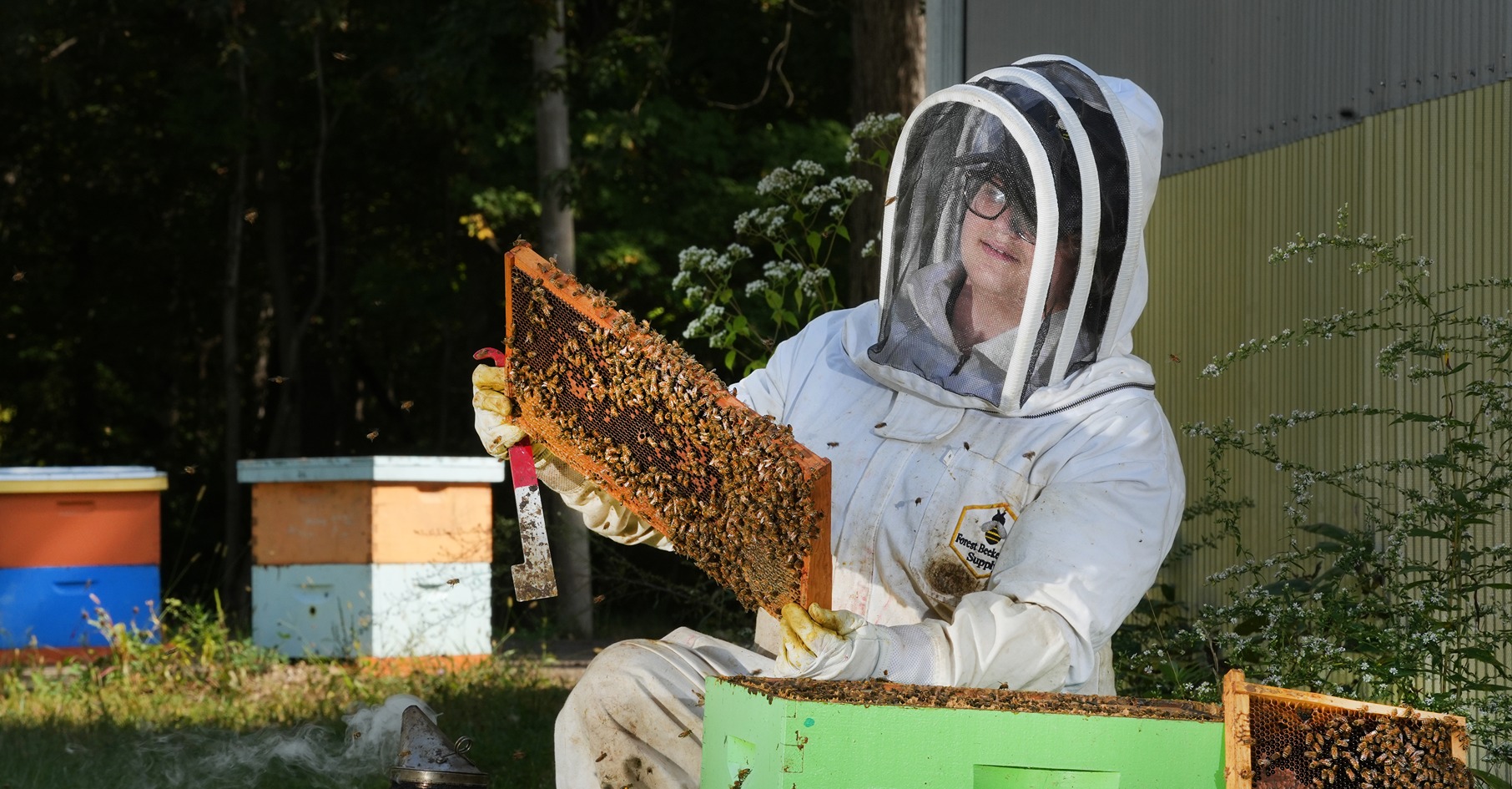Cultivating the Future: Allison Beach and Lexi LaMar

From the community to the insect lab to the health department
Hundreds of mosquitoes zip around in a circular, netted trap as Allison Beach explains the daily process of collecting and analyzing the mosquitoes for the Indiana Department of Health. In the background, pungent water rushes into the West Lafayette Wastewater Treatment Plant, an unusual location to find an entomology major, but a common one to find mosquitoes.
“Mosquitoes love gross water. If you think about it, there aren't a lot of predators that are going to be in there, and there's plenty of nasty stuff to eat. And even if there's a drought, there's always going to be water here,” Beach said. “It's kind of like a little mosquito oasis.”
This summer, entomology majors Allison Beach and Lexi LaMar are interning with the Indiana Department of Health to examine “mosquito oases” across 11 different Indiana counties. Beach works in Carroll, Tippecanoe, White, Howard, Benton and Clinton counties, while LaMar works in Henry, Madison, Randolph, Delaware and Wayne counties. Beach and LaMar set specialized traps, called gravid traps, to survey areas to find mosquitoes positive for carrying West Nile virus.
There are a few different steps to the surveying process. First, Beach or LaMar arrive at a location during the day to set up two traps. Each trap has six components: a plastic tub, a water-alfalfa mixture, a PVC pipe with two holes drilled in the side, a small, built-in vacuum, a battery to power the vacuum and a round net. Although the setup seems complex, the way the traps catch mosquitoes is simple. The alfalfa-water mixture attracts egg-carrying female mosquitoes into the bin, where they get sucked up into the net. Once in the net, the mosquitoes are captured and ready for collection.
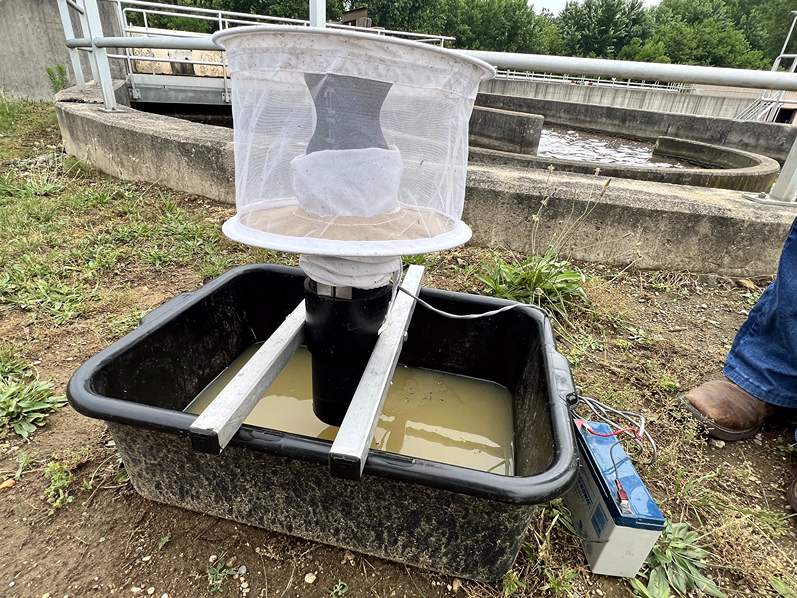 One of Lexi LaMar's gravid traps set up and ready to catch mosquitoes at the Alexandria, Indiana wastewater treatment plant (Photo by Samuel Reusze)
One of Lexi LaMar's gravid traps set up and ready to catch mosquitoes at the Alexandria, Indiana wastewater treatment plant (Photo by Samuel Reusze) Beach and LaMar leave the traps set for 24 hours before returning to collect the samples. The mosquito samples are then frozen for later analysis. Beach explained, “I'm identifying the mosquitoes, sorting them into vials and then sending them to the Department of Health lab, where they use PCR testing, kind of like COVID testing, to test for West Nile virus.”
LaMar said, “Some people I've talked to about my internship probably think that the coolest part of my job is that I am the mosquito girl.”
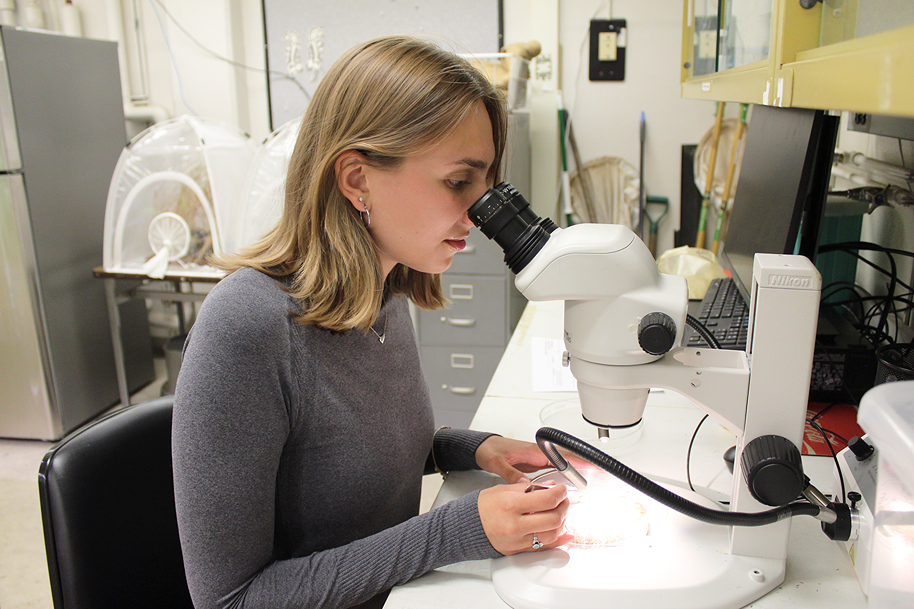 Allison Beach examines and sorts mosquito samples by species before sending them to the Indiana Department of Health for testing (Photo courtesy of Allison Beach)
Allison Beach examines and sorts mosquito samples by species before sending them to the Indiana Department of Health for testing (Photo courtesy of Allison Beach) Beach and LaMar know the process is vital to keeping people safe. “My favorite part of the job so far is definitely just knowing that what I do in this internship has an impact on people,” LaMar said.
Beach expressed a similar sentiment. "I'm documenting this so people know as early as possible in the season what to do and how to better be prepared for West Nile Virus in Indiana."
Both Beach and LaMar have helped to identify positive cases of West Nile virus–infected mosquitoes.
Beach described her first positive discovery. “It was the first of the season in Clinton County at a wastewater treatment plant in Frankfort. While it's not really the happiest thing — obviously we don't want West Nile virus in Indiana — it was satisfying for me to know that I'm doing something right. The mosquitoes I'm collecting are the right ones.”
LaMar shared a similar story about her first positive. LaMar said,
“Last week, I found my first positive West Nile virus hit, and it was actually in my own county. Being able to go out to that treatment plant and tell the people there, ‘We have West Nile virus here. You guys need to take some extra safety precautions,’ makes me feel like I'm making a difference in helping people stay safe.”
LaMar and Beach heard about the internship through Catherine Hill, the department head of entomology and a medical health entomologist. Beach also credits Ameya Gondhalekar, a research associate professor who studies urban pests, who encouraged her to apply.
Beach and LaMar hope to continue improving public health, using what they’re learning from their internships. Beach, who will graduate in Spring 2024, plans to continue studying urban pests in graduate school and in an urban entomology job. Lamar wants to study medical entomology or food science after graduating in Spring 2024 and hopes to earn a master’s and possibly doctorate degree.
If you would like to learn more about West Nile virus prevention, please check out some of these helpful resources:
Indiana Department of Health (IDOH) West Nile virus facts:
IDOH mosquito bite prevention:
IDOH news article about first West Nile virus detection in Indiana in 2023:
WTHR news article about West Nile virus prevention tips:

